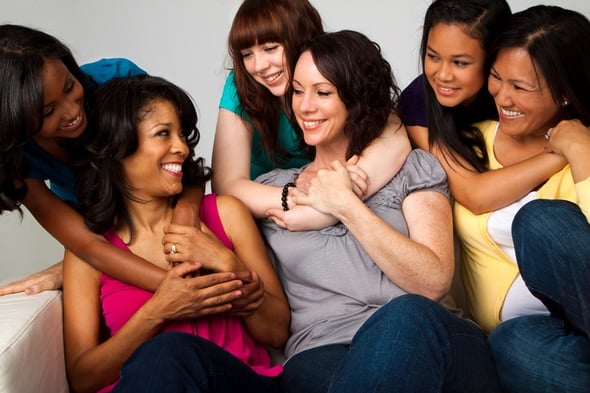
As much as teenagers might be loath to admit it, parents are the greatest influencers in their lives, especially when it comes to discouraging them from alcohol and drugs. One survey of 663 teens discovered that of the respondents whose parents felt underage drinking was unacceptable, only 8 percent of the kids were drinkers themselves. Contrast that with parents who thought underage drinking was OK—the number of teen drinkers in the survey jumped to 42 percent. This finding only goes to reinforce the power one parent can possess in influencing his or her children.
Now imagine it’s not just one parent but many parents working together in your community. That kind of united effort can make a real difference in helping keep teens safe. Parent support groups—or more specifically, parent peer groups—can effect positive change in your neighborhood and community. Here are some ideas for starting such a group in your area:
Get to Know Your Children’s Friends’ Parents
Raise your hand if you tried this in your youth: You told your parents that you were sleeping over at a friend’s house, and all your friends told their parents the same thing, counting on the fact that the parents didn’t know each other well and wouldn’t check to see a sleepover was actually happening (and in the meantime, the group plans something they clearly aren’t permitted to do …). This sneaky ruse can be easily derailed—or not even attempted—by getting to know the parents of your teen’s friends.
We’re not talking about a “nice to meet you” moment, but rather, engaging in an actual conversation with these parents. You have something in common—you are both raising teens—so that should be a starting point for your acquaintanceship. Meet for coffee, discuss the challenges you face as parents, and, most importantly, get their contact info into your smartphones and vice versa. That way, if you must contact them for whatever reason, there’s no excuse—you already know them and can easily get a hold of them. Once these friendships start growing, organizing a parent peer group becomes easier.
Work with the PTA and Other Parent Groups
Once you and others have decided to start a parent peer group, you may discover many allies who will lend their support. The PTA may be a good resource—not only is the organization committed to improving the student experience, but it also can put you in touch with other parents who might want to be part of your peer group and help the cause.
Work with Schools and Teachers
Schools undertake their own campaigns and efforts to curb teen drinking. Teachers and educators will almost always welcome parent input and participation. Many campaigns, such as Red Ribbon Week, aren’t exclusively focused on schools, but rather enlist families and educators to spread anti-drug and anti-alcohol messages. Moreover, invite teachers to become part of your group. Many are parents themselves and are just as concerned about keeping teens safe as you are. Also, teachers, who spend hours a day with the student population, bring a unique perspective that parents collectively might not see.
Look for Help Online and in the Community
Parent peer groups that are dedicated to keeping kids safe can find plenty of partners to help achieve this goal. For starters, a wide array of community organizations, from police departments and healthcare providers to nonprofits such as Informed Families, share your goal as well and will provide resources to get your group started and keep it active. Also, plenty of websites, including National Institute on Drug Abuse, MADD, and Informed Families offer plenty of online information to use for discussion and to build your parent peer group’s strategy around.
Parent Pilot Kit
Informed Families offers the Parent Pilot Kit—a science-based book written by parents for parents. This collection includes the latest and best research on teenage brain development, media, social norms and parent peer groups. Containing information about communication, driving laws, drug charts, parental self-evaluations and more, the Parent Pilot Kit is a tool to educate and unite parents in order to help keep kids healthy, safe and drugfree.

